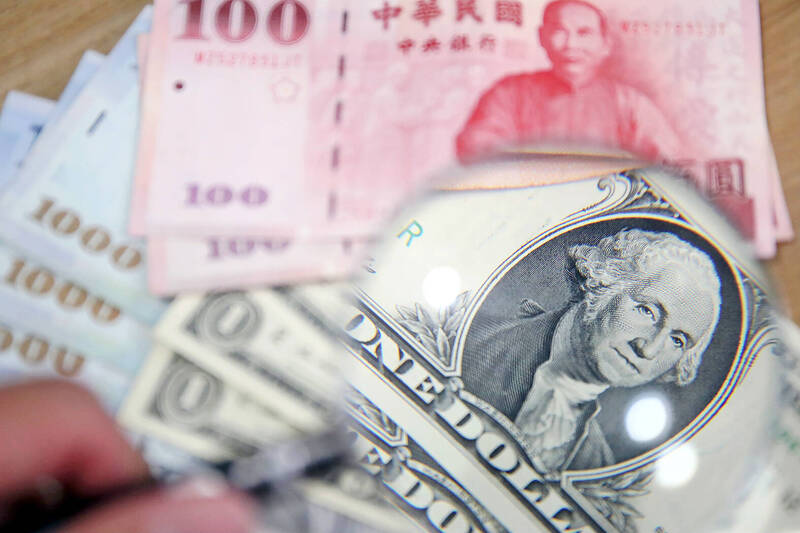《TAIPEI TIMES》 Foreign exchange controls eased

New Taiwan dollar and US dollar banknotes are pictured in Taipei on April 11, 2022. Photo: CNA
SINGAPORE EXAMPLE: A stable NT dollar should not be deemed a stumbling block to the development of a regional asset management center, an official said
By Crystal Hsu / Staff reporter
The central bank yesterday eased foreign exchange controls by doubling the remittance ceilings for individuals and corporate entities to support the government’s effort to build Taiwan into a regional asset management hub.
From tomorrow, the annual cumulative remittance limit would rise to US$10 million from US$5 million for individuals and to US$100 million from US$50 million for corporate entities, Department of Foreign Exchange Director-General Eugene Tsai (蔡炯民) told a media briefing in Taipei.
“The deregulation is intended to help propel the government’s bid regarding the regional asset management hub, and reflect the nation’s growing economic strength and wealth,” Tsai said.
Taiwan’s GDP per capita was US$32,319 last year, up 55 percent from US$20,866 in 2011, while holdings in foreign securities expanded 3.48-fold to US$1.3 trillion from US$0.31 trillion over the same period, he said.
The nation’s foreign exchange reserves last year jumped 48 percent to US$570.6 billion from US$385.6 billion in 2011, adding significant resilience to the local foreign exchange market, Tsai said, adding that the central bank frowns on practices that could weaken its ability to keep the New Taiwan dollar stable.
A stable NT dollar should not be deemed a stumbling block to the development of a regional asset management center, Tsai said, adding that asset management is flourishing in Singapore without a volatile Singaporean dollar because only 10 percent of foreign exchange business involves its local currency.
In other words, people there use major foreign currencies to carry out foreign exchange transactions, leaving the Singaporean dollar largely stable, Tsai said, adding that people in Taiwan like to cite Singapore as an example to follow.
Taiwan can approach the development of the regional asset management center based on the city-state’s model, he said.
The central bank has been criticized for assigning too much importance to a stable currency and being overly conservative in its monetary policy.
Still, the central bank would keep remittance quotas because few individuals and corporations have expressed a need for looser caps, while capital flows linked to foreign trade and the asset management business have been fully liberalized, Tsai said.
Only 50 individuals and 10 companies last year demonstrated a need for relaxed remittance restrictions, and they sought approval from the central bank to address their situations, he said.
Remittances by individuals and corporate entities constituted only 5 percent of the statutory quotas, the central bank said.
Furthermore, a US government bond fund is set to hit US$900 billion next month, in line with a craze among Taiwanese for investment tools that generate fixed income, Tsai said, adding that the asset management business is thriving in Taiwan.
新聞來源:TAIPEI TIMES















